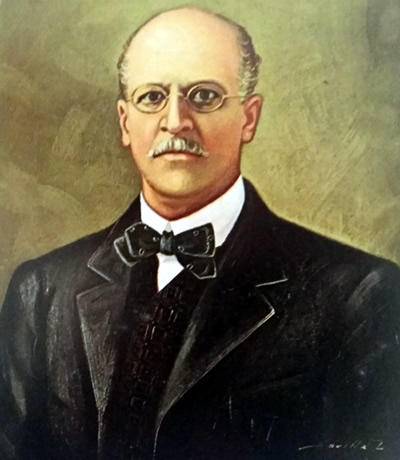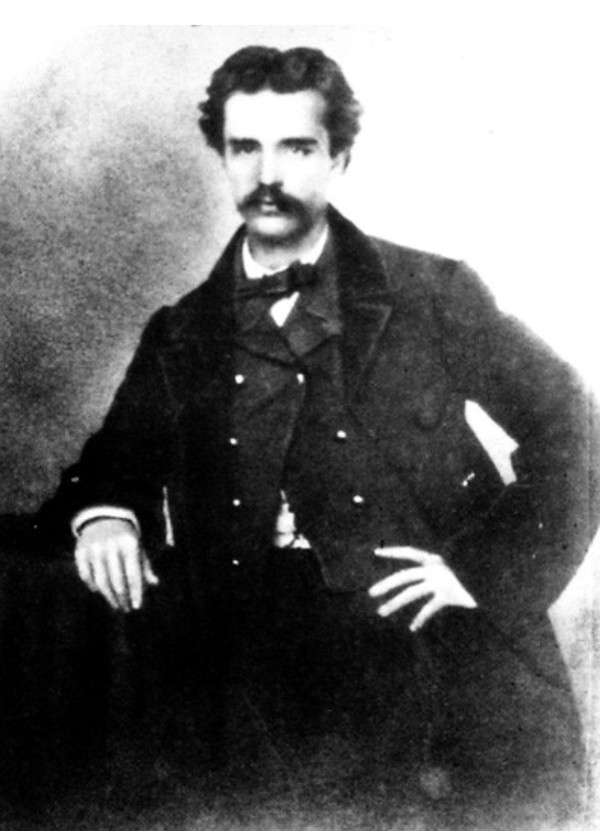Luis Francisco Madera Negrete (Ibarra, Ecuador, February 25, 1883 – Quito, Ecuador, November 23, 1987) was a chronicler, poet, historian, and jurist who served as President of the Supreme Court of Ecuador in 1952. Known for his clarity of expression and dedication to documenting the history of his hometown, Ibarra, he authored works such as Impresiones (1919), a book of poetry, and Ibarra y el terremoto de 1868 (1918), a detailed account of the city’s recovery from the 1868 earthquake. His historical writings preserved key aspects of Ecuadorian culture and journalism, including Periódicos ibarreños (1927), which chronicled 47 local newspapers. A devoted chronicler, his legacy endures as a vital contributor to Ecuador’s cultural and historical record.
Early Life and Education
Luis Francisco Madera Negrete, often referred to as Luis F. Madera, was born on February 25, 1883, in Ibarra, Ecuador. He was part of a prominent family deeply connected to the history and culture of Ibarra. His parents were José Liborio Dolores Madera Lainez and Dolores Margarita Negrete. He had several siblings, including Monsignor Elías Liborio Madera Negrete, a priest and historian with whom Luis collaborated on documenting Ibarra’s history.
Luis pursued higher education at the Universidad Central del Ecuador, where he graduated with a degree in Jurisprudence after presenting his thesis La educación a la luz de la sociología in 1911. This work reflected his interest in sociology and education, emphasizing the societal function of education.
Literary Career
Luis F. Madera was a prolific writer and chronicler of Ecuadorian history, culture, and natural disasters. His works included poetry, historical chronicles, and essays, many of which were published in local newspapers and standalone publications. Notable contributions include:
- “Impresiones” (1919): A book of poetry characterized by clarity and simplicity, exemplifying his classical poetic style.
- “Ibarra y el terremoto de 1868” (1918): A detailed historical account of the devastating earthquake that struck Ibarra, documenting the event’s impact and the city’s subsequent recovery.
- “Periódicos ibarreños” (1927): A comprehensive history of 47 newspapers in Ibarra, preserving the city’s journalistic tradition.
- “La educación a la luz de la sociología” (1911): A sociological examination of education, published as part of his doctoral studies.
Madera was also a regular contributor to local newspapers, where he published essays and historical pieces.
Professional Career
In addition to his literary contributions, Luis F. Madera had a distinguished legal career. He served as President of the Supreme Court of Ecuador in 1952, a testament to his expertise and standing in the judiciary.
Personal Life
Luis married Manuela Inés Guillermina Grijalva Guzmán on June 3, 1929. Together, they had six children. His deep connection to his hometown of Ibarra influenced much of his work, and he remained a steadfast advocate for the city’s cultural and historical preservation throughout his life.
Legacy and Contributions
Luis F. Madera’s legacy is multifaceted, encompassing his roles as a chronicler, poet, historian, and jurist. His writings documented significant events in Ecuadorian history, such as the rebuilding of Ibarra after the 1868 earthquake and the cultural evolution of the Imbabura province. His contributions include:
- Preserving local history through detailed chronicles and essays.
- Promoting Ibarra’s cultural heritage in works like “A Ibarra” and other poetic tributes to the city.
- Documenting the evolution of journalism in Ibarra, ensuring future generations could access these cultural artifacts.
Luis F. Madera passed away on November 23, 1987, in Quito, Ecuador, at the remarkable age of 104. His extensive body of work continues to serve as an invaluable resource for understanding the history and culture of Ibarra and Ecuador as a whole.
Poems
Translated by Richard Gabela on November 18, 2024.
Longings
Harsh or sweet,
the hours of my life will always belong,
Ibarra, to you—
and never to me.
For it is you who breathe into them
the vital essence of your caresses,
the faith in your promises,
your very soul!
You, who bestow,
with the lofty ideals of your triumphs,
boundless promises
and endless hopes;
You, who treasure,
in your children, rare virtues,
will outline the path
of my labors:
When I see you—
not just gallant and alluring, but proud—
my work, though humble,
will never feel unworthy.
When tears
threaten to extinguish this cherished dream,
I will see you, anguished,
but never defeated!
Wherever I go,
my heart will burn with a fervent desire,
longing for you to swiftly expand
your blessings and your joy.
And oh, if only,
beneath the Cross of our intimate struggles,
your earth might someday mingle
with my ashes!
1907
Published in “Impresiones” (1919)
Anhelos
Rudas o gratas,
siempre serán las horas de mi vida,
Ibarra, a ti ofrendadas,
y nunca mías;
que tú les prestas
el hálito vital de tus caricias,
la fe de tus promesas,
¡tu alma misma!
Tú, que deparas,
con el grande ideal de tus conquistas,
promesas y esperanzas
indefinidas;
tú, que atesoras,
en tus hijos, virtudes peregrinas,
me trazarás la norma
de mis fatigas:
cuando te mire
—más que gallarda y atrayente— altiva,
mi labor —siempre humilde—
no será indigna;
cuando las lágrimas
quieran dejar esta ilusión marchita,
te miraré angustiada,
¡jamás vencida!
Doquier me encuentre,
dominará en mi pecho el ansia viva
de que presto acrecientes
dones y dicha.
¡Y quién me diera
que ante la Cruz de nuestras luchas íntimas
se mezclase tu tierra
con mis cenizas!
1907
Published in "Impresiones" (1919)
Selected Works
Poetry
- Impresiones (1919): A collection of poetry, characterized by clarity and simplicity, published by Tipografía El Comercio, Ibarra.
Historical Chronicles
- Ibarra y el terremoto de 1868 (1918): A detailed account of the 1868 earthquake and its impact on Ibarra, including recovery efforts.
- Geografía de Imbabura (1918): A geographical description of the Imbabura province, second edition published in the same year.
- Periódicos ibarreños (1927): A historical account documenting 47 newspapers from Ibarra, published to commemorate the centenary of the city’s declaration.
- Ibarra, para el mundo bolivariano (1926): A historical essay published by Tipografía El Comercio.
Essays and Sociological Works
- La educación a la luz de la sociología (1911): A sociological analysis of education, presented as his doctoral thesis at the Universidad Central del Ecuador.
Biographical Works
- Federico González Suárez (1982): A biographical account of the prominent Ecuadorian historian and priest, published by Artes Gráficas Señal.
References
- Biblioteca de Cultura y Patrimonio (Ecuador). Ibarra, para el mundo bolivariano. Retrieved on November 16, 2024. Click to view.
- Google Books. Ibarra y el terremoto de 1868. Retrieved on November 16, 2024. Click to view.
- Google Books. Federico González Suárez. Retrieved on November 16, 2024. Click to view.
- Google Books. Impresiones. Retrieved on November 16, 2024. Click to view.
- Biblioteca Nacional Eugenio Espejo (Ecuador). La educación a la luz de la sociología. Retrieved on November 16, 2024. Click to view.
- Revistas UNC (Universidad Nacional de Córdoba, Argentina). Geografía de Imbabura. Retrieved on November 16, 2024. Click to view.
- El Comercio (Ecuador). Diario marcó 67 años de historia. Retrieved on November 16, 2024. Click to view.
- Ibarra Ecuador en la Historia Escrita (WordPress Blog). El cronista de la ciudad. Retrieved on November 16, 2024. Click to view.
- La Hora (Ecuador). La Verdad, periódico de los ibarreños. Retrieved on November 16, 2024. Click to view.
- La Hora (Ecuador). El cronista de la ciudad. Retrieved on November 16, 2024. Click to view.
- Geneanet. Segundo Luis Francisco Madera Negrete. Retrieved on November 16, 2024. Click to view.
- Wikipedia. Politics of Ecuador. Retrieved on November 16, 2024. Click to view.


